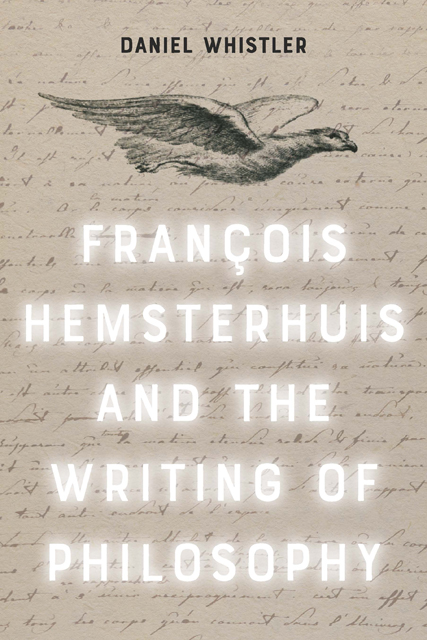Part One - Preliminaries
Published online by Cambridge University Press: 03 June 2023
Summary
§1 Philosophy and Poetry
Alexis – the last in Hemsterhuis’ late sequence of dialogues, written in 1781 – restages the ancient quarrel between philosophy and poetry. Diocles undertakes to persuade Alexis (a novice convert to Socratic inquiry) not only that, despite appearances to the contrary, philosophical reasoning and poetic fable are reconcilable, but also that philosophy requires such poetry as its ground. And this is because creativity in thinking – the production of new truths and so intellectual progress – presupposes a poietic moment. In short, the dialogue concludes, ‘Philosophy owes much to poetry’ (EE 2.143; OP 634).
Plato’s Republic had staged the quarrel by weaving together two distinct poles: (1) the explicit denunciation of mythos from the perspective of enlight-ened logos; and (2) the implicit performance of poetry, as dialogue and myth, within the philosophical text. Alexis responds by thematising both poles explicitly in its argument and concluding in favour of the latter. This con-clusion additionally alludes to Rousseau’s 1750 Discours sur les sciences et les arts, which had likewise thematised the two poles of Plato’s quarrel, but conversely concluded in favour of the elimination of ornament, rhetoric and poetry from presentations of the truth. According to Rousseau, eloquence had condemned Athens to ‘luxury’, ‘enervation’ and ‘vices’ (2018: 10, 12); it had resulted in sophistic dissimulation under the guise of pleasing prose. Hemsterhuis will attempt to reverse Rousseau’s conclusion, and he will do so – most provocatively – in an Athenian setting (equally saving Athens from Rousseau’s condemnation).
The dialogue begins with Alexis offering an orthodox Platonic-Rousseauian condemnation of the poets as failing to live up to the rigours of Socratic philosophy, owing to their ‘lies and fables’, to their ornamentation of the truth in ways ‘which obscure it’ like ‘a stain’, to their substitution of ‘dreams and ruminations in place of truths’ (EE 2.124; OP 576–8). What the poets fail to recognise, according to Alexis at the beginning of the dialogue, is that ‘the beautiful truth is stark naked by nature’, to be communicated without ornament (EE 2.124; OP 576). The dialogue ends, however, with Diocles convincing Alexis of the ineradicable poetic core to philosophising.
- Type
- Chapter
- Information
- Francois Hemsterhuis and the Writing of Philosophy , pp. 1 - 24Publisher: Edinburgh University PressPrint publication year: 2022



